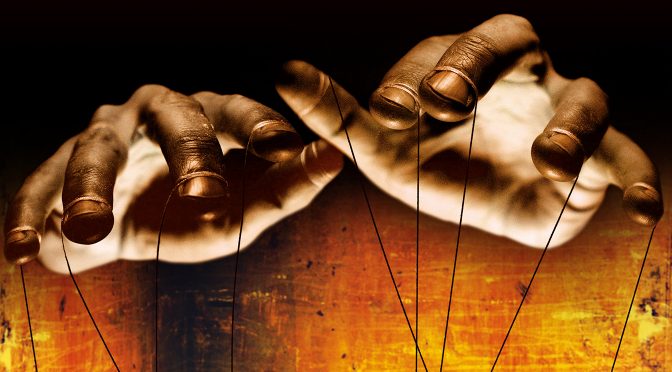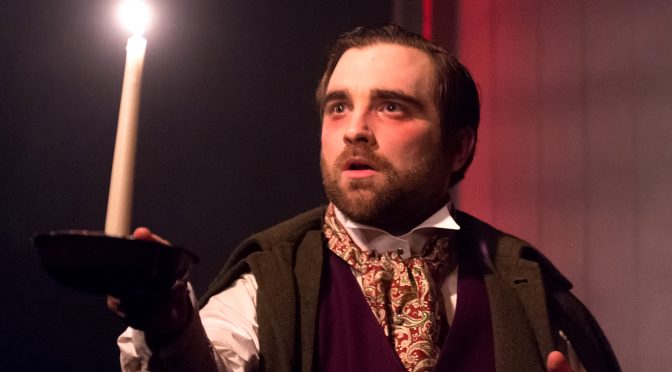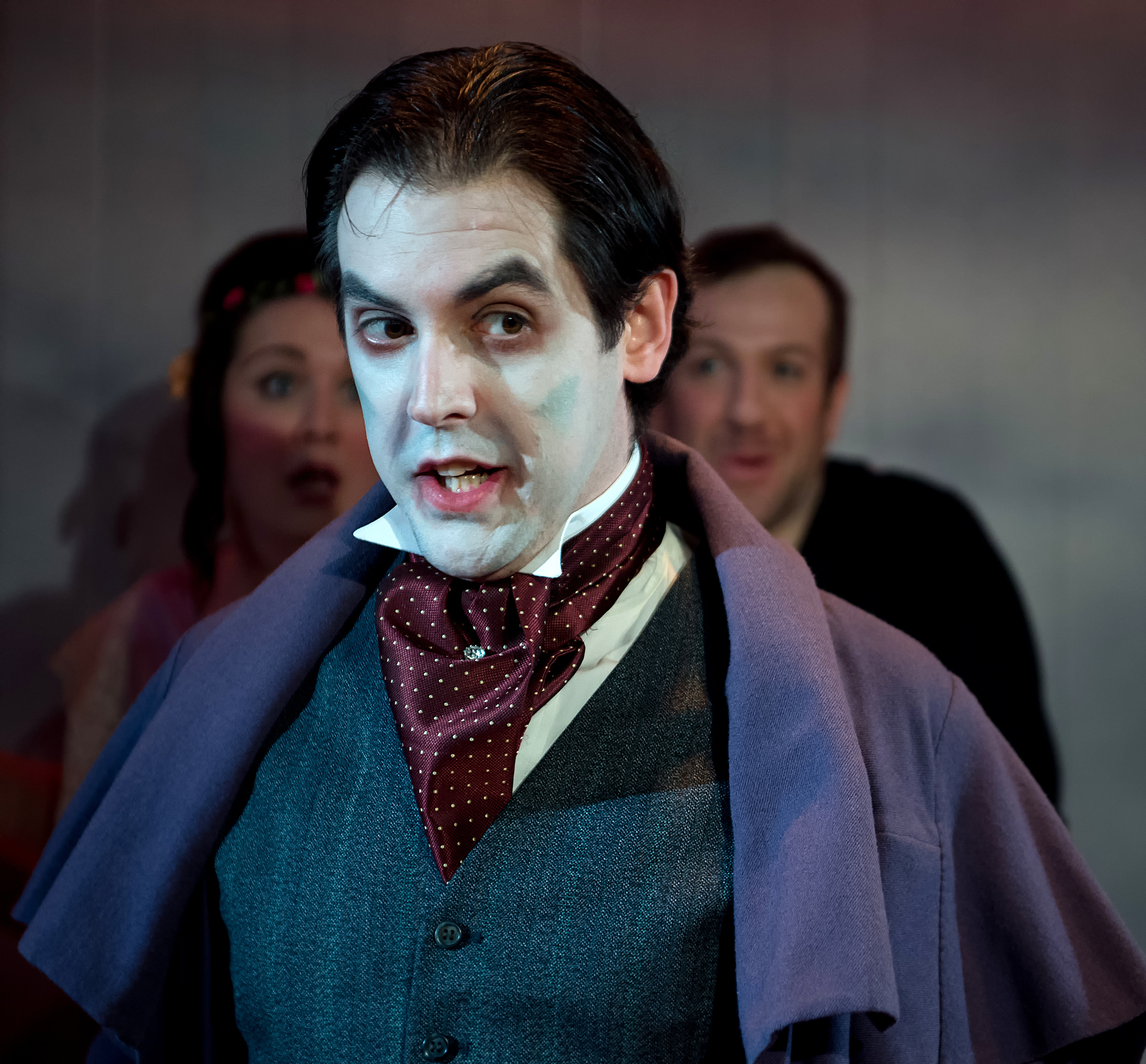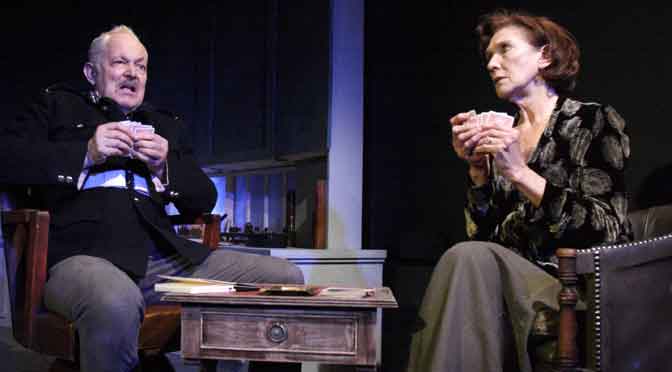First praise here goes to whoever prepared this venue for a socially distanced audience. Instead of depressing signs telling you where not to sit, photographs from previous performances are used on empty seats. What a lovely, colourful, touch. A nod to heritage is appropriate, given Hampstead Theatre’s 60th anniversary celebrations, which this Harold Pinter classic is a part of. And I get to say that I sat next to Anna Maxwell Martin in the theatre… kind of.
Of course, any theatre deserves praise for putting on a show at the moment. But getting to see this short piece, between long lockdowns and tier adjustments, is especially welcome as it is directed by the talented Alice Hamilton. It’s a story of hired killers, waiting for… something. Hamilton’s direction is confident and expert, respecting Pinter’s nuance and drama and appreciative of the playwright but not intimidated by him.
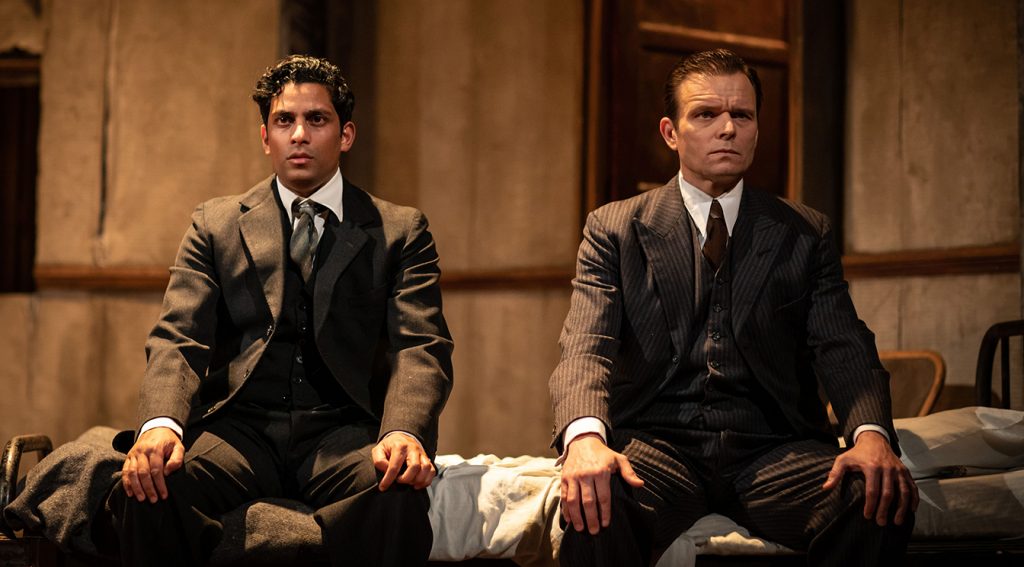
Hamilton has secured fine performances from a talented duo: Alec Newman plays “senior partner” Ben, seemingly in charge of Shane Zaza’s Gus. Seemingly, as he knows as little about what is going on as his more anxious colleague. Through their skilled performances, the audience shares their confusion. A vague sense that whatever organisation they work for, and the enigmatic Wilson who is in charge, is being “tightened up” is compounded by bizarre messages the two men receive. What’s going on, and what’s happened previously, is never fully revealed, but glances at the men’s history prove chilling.
The production never overplays the more surreal touches from Pinter. That someone is playing “games” with Ben and Gus becomes more sinister as a result. The sense of menace is aided by James Perkins’ set, the “windowless dump” all action takes place in. We’ve all spent a little too long indoors lately, but under Hamilton’s steely control the claustrophobic tension in The Dumb Waiter builds marvellously – this is a director very much in charge.
Until 20 January 2020

